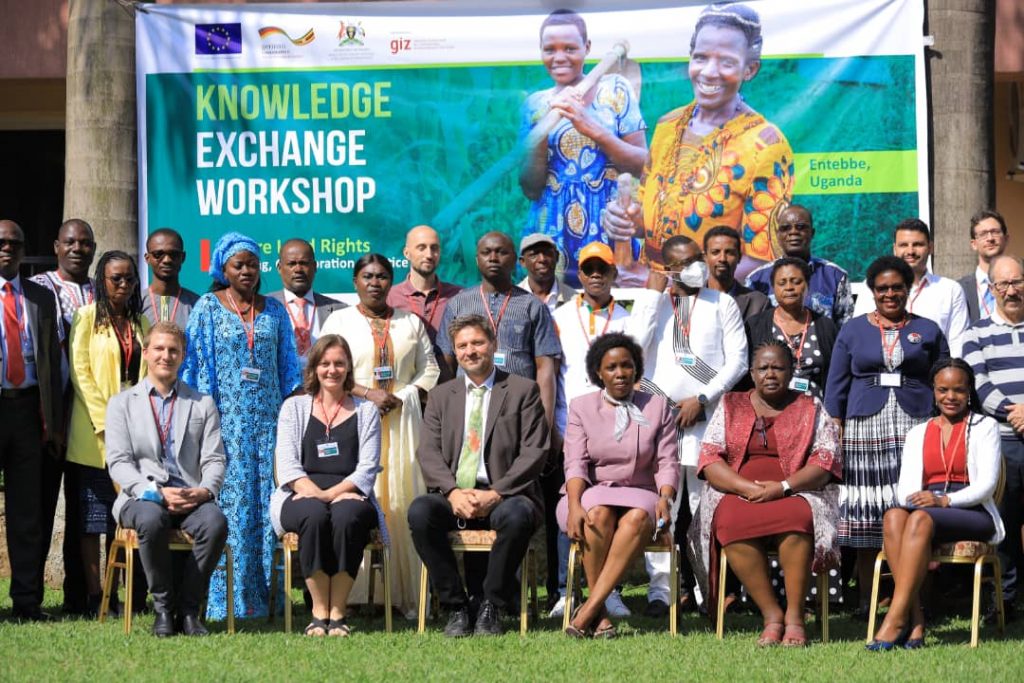As part of efforts to promote secure land tenure challenges and achievements, the German Development Cooperation’s (GIZ) Global Programme Responsible Land Policy (Global Programme) and Strengthening Advisory Capacities for Land Governance in Africa (SLGA) programmes in collaboration with the Ministry of Lands, Housing and Urban Development in Uganda will host a five-day workshop in Entebbe, Uganda on the theme, Secure Land Rights – Learning, Collaboration, Practice.
The workshop brings Uganda land governance stakeholders, GIZ land programmes, global land stakeholders and institutions to dialogue on pressing issues in the land governance space. It builds on lessons learned from linking practical approaches to land management and policy research.
Over 70 participants from 17 different countries will listen to high-level stakeholders as they share successful experiences and lessons learnt in defining new ways forward in land tenure. With a focus on South-South Exchanges, the workshop will make available increased knowledge and experiences across technical fora and networks, thereby creating an opportunity to strengthen the topic of land tenure in a broader, more sustainable, and institutionalised manner.

In addition to having the chance to meet land policy peers face-to-face in networking sessions, participants will be able to pose their questions directly to the conference’s high-level subject-matter experts representing the African Union, AU Member States parliamentarians, academia, Government representatives and others.
“After 6,5 years of implementation in various countries including Uganda, our programmes have supported a wide range of development options, adopted practical land rights formalisation approaches and incorporated them into policies. We have created scientific networks to support the topic of land governance in training and research,” said SLGA Head of Project Arno Sckeyde, “With several years of implementation still ahead, the workshop provides an ideal moment for the two global programmes to join hands, and reflect on what works, share knowledge and best practices, and build on new ways of working for the future.”
“For this reason, we have designed this workshop not only to serve as a platform to network and share good practices but to also empower land stakeholders with practical advice that can be effectively implemented at regional and national levels, within institutions and land policy spaces,” he said.











